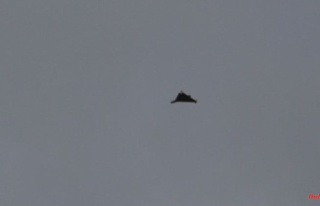Russia is continuing to expand its naval forces despite the sanctions, according to Germany's top marines. Above all, the western nations would have to keep an eye on the underwater infrastructure. Russia has recently been hanging around in their vicinity remarkably often.
According to the assessment of the German naval inspector Jan Christian Kaack, the Russian navy is being upgraded despite the Western embargo and the Ukraine war. "I assume that the Russian Navy will come out of the Ukraine war essentially stronger," said the Vice Admiral of "Welt". "We are currently seeing the unchecked construction of modern units that are highly effectively equipped. The Western embargo doesn't seem to be taking effect yet." The new naval doctrine, for example, attaches greater importance to this branch of the armed forces than before.
The units would be equipped with supersonic weapons or "Iskander" ballistic missiles. The announcement by Russian President Vladimir Putin that new hypersonic sea missiles called "Zirkon" would soon be put into service on a frigate was not propaganda: "I take it seriously. Very seriously."
At the same time, Kaack warned of Russian attacks under water. "You can't just look at the water. Russia has also built up significant capacities under water," said the Vice Admiral. "On the bottom of the Baltic Sea, but also in the Atlantic, there is some critical infrastructure such as pipelines or undersea cables for IT. They can quickly switch off the lights in countries like Estonia, and there are threats to global communication structures that you have to pay particular attention to. " According to Kaack, Russian underwater or surface units have recently been in the area of these cables for a long time.
With regard to the Bundeswehr, he said that, in view of the war, they had learned to concentrate more on their core competencies again. This included deterrence, but also the possibility of using military capabilities successfully. This requires the special fund and an increase in the defense budget to two percent of economic output. "The chancellor promised that, I'll take him at his word." On the subject of sustainability, he presented priorities for needs to the responsible minister. "They are: munitions, munitions, munitions, spare parts, spare parts, spare parts. Then there are leadership skills and infrastructure."












